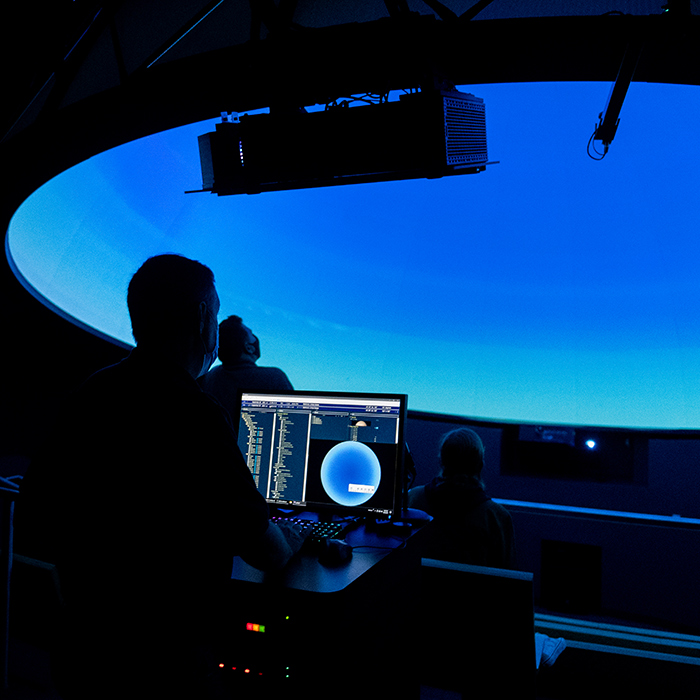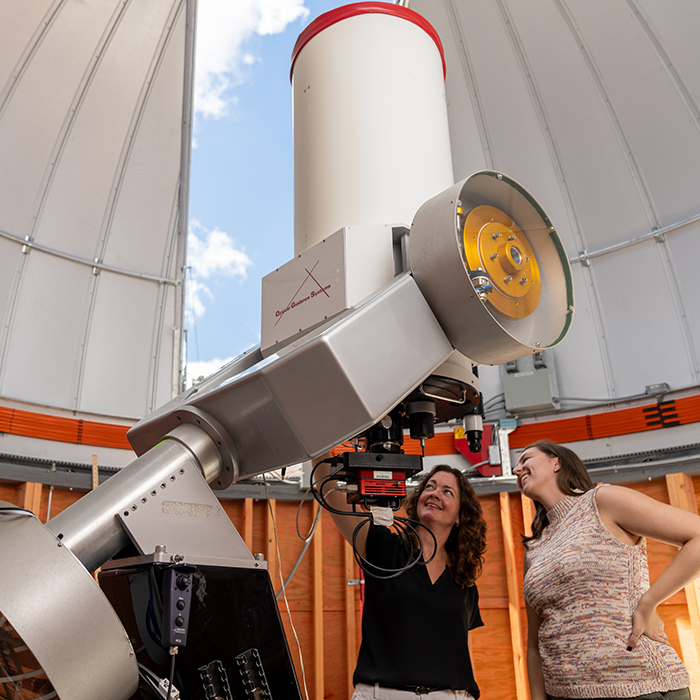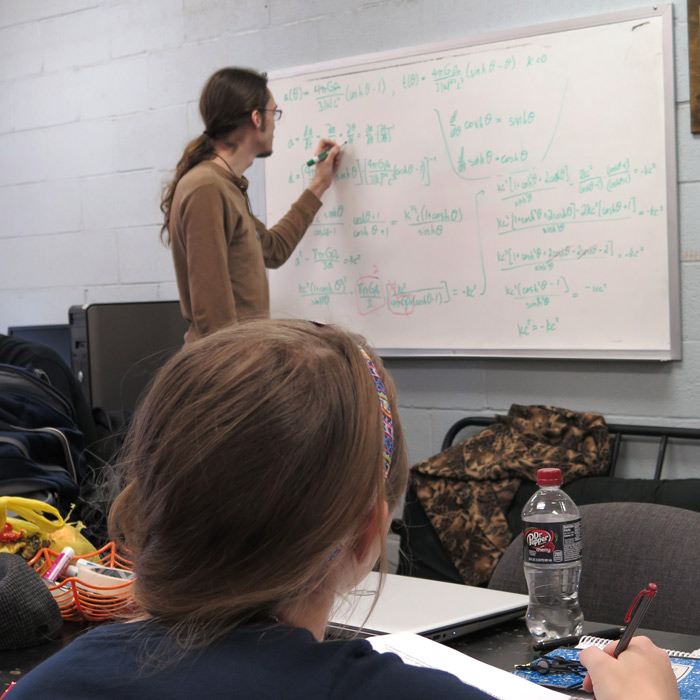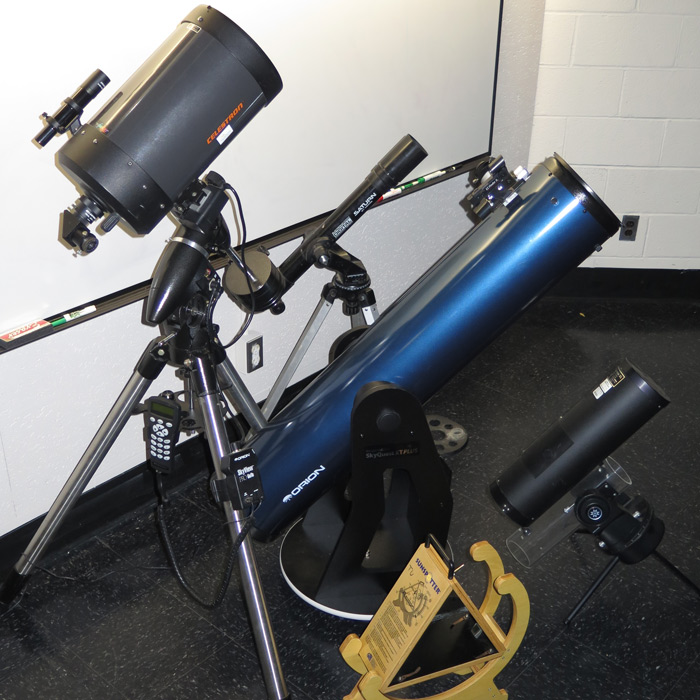Facilities
Here are some of the facilities available for students of astronomy and astrophysics.

Planetarium
The planetarium has a 24ft diameter dome with a Spitz digital projector. This allows us to not only study the sky from any time and from any place on Earth, but from any vantage point in space as well. The sky is no longer the limit! We can land on the Moon, Mars, or other solid bodies, see what the stars are like from Alpha Centauri, look at the structure of our Milky Way galaxy and other galaxies, groups, and filaments, and finally look at the structure of the Cosmic Microwave Background, the echo of the Big Bang itself.
Read more
Towson Observatory
Our 0.4m diameter Ritchie-Chretien telescope has four instruments in addition to a selection of eyepieces. Wide-field and high resolution cameras with standard broadband and medium-band filters allow for a wide variety of imaging research projects, and a low/medium and a high resolution spectrometer allow for more detailed physical investigation of bright objects.

Astronomy Tutoring
Tutoring in the department is mainly done by astrophysics students and comes in multiple forms. There is Natural Science Tutoring Center in the Science Complex (linked below), some astrophysics students have office hours, and sometimes astrophysics students hold special sessions for a specific class (usually before a test).
Natural Science Tutoring Center
Telescope assortment
TU has an assortment of small portable telescopes for eyepiece viewing, including a “Sunspotter” telescope for safely observing the Sun. 8” Dobsonian and Cassegrain telescopes can be transported to remote sites for viewing celestial objects at special events.